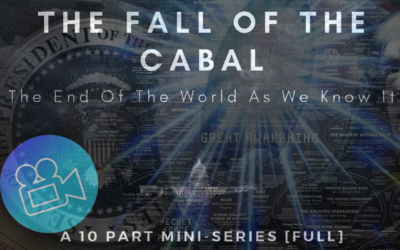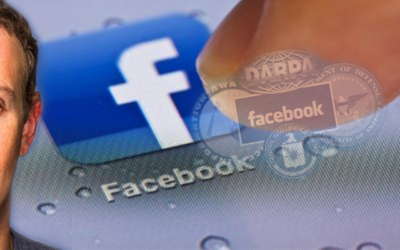You may have noticed it last week. Anonymous claimed the scalp of yet another a major government agency.
Supporters of the the online movement of activists and internet trolls said they’d stolen 1.7 GB of data from an agency within the Department of Justice that aggregates crime data. They claimed to have nabbed “lots of shiny things such as internal emails and the entire database dump.” They branded the heist as “Monday Mail Mayhem,” said it could help people “know the corruption in their government.” They posted it on Pirate Bay as a torrent, for anyone to see — and 1.7 GB was just the size of the zipped file.
Not many people bothered to check what was actually in the huge file.
Step in Identity Finder, a software security firm. Privacy officer Aaron Titus downloaded the payload last week and sifted through it all, checking out the veracity of the claims by Anonymous.
Turned out they were overhyped.
The zipped file contained 6.5 GB of web server files and “does not appear to contain any sensitive personal information, internal documents, or internal emails,” according to Titus. A folder named “Mail” was mostly empty, though it contained two administrative email addresses. There were also no personal details (social security numbers or credit card numbers), and the worst the breach had done was reveal the site’s web server file, which could be leveraged by other hackers for future attacks.
It looked like the breach had done more to grab attention from the media and the Department of Justice than do any real damage.
Surprised? You shouldn’t be. This was another illustration of the power of Anonymous as a continuing online insurgency: not in hacking per se, but its constant ability to grab eyeballs, project power, and give followers a voice and sense of purpose unlike any they’ve experienced before. What’s important for companies and policy makers (the typical targets) to note is that it’s oftentimes more a tease than anything else.
Other examples:
1) Earlier this month Fox News reported that an online group called TheWikiBoat, aligned with Anonymous, planned to bring down the websites of 46 major companies on Friday May 25. TheWikiBoat said in a public statement that it had “no motives other then [sic] doing it for the lulz,” (ie. for shits and giggles). The FBI’s Cyber Division was concerned enough to send an email to the likes of Apple Computer, McDonald’s and ExxonMobile warning them of a potential attack — which didn’t happen.
2) Around this time last year, a single supporter of Anonymous managed to grab global headlines when he tweeted that he had a cache of bank of America emails. What he eventually released was an e-mail exchange between himself and a BofA ex-staffer who made (what admittedly looked like valid) complaints about the bank’s management. But it did nothing to the bank’s stock price, and the news agenda quickly moved on.
3) In December 2010 Anonymous claimed responsibility for taking down the websites of PayPal, MasterCard and Visa after these firms nixed online donations to WikiLeaks. How? Supporters implied it was thanks to thousands of volunteers who had become part of an cyber army by downloading a software tool called LOIC. What really happened: a couple of supporters with botnets temporarily took the sites down — but the notion that Anonymous was an international “army” of hacktivists was left floating around the Internet.
Time and again, online supporters have laid claim to the brand power of Anonymous, invoking its name, imagery such as the Guy Fawkes logo and headless, suited man surrounded by olive leaves, along with the tag line, “We are Anonymous… Expect us.” The result: news outlets and policy makers sit up and listen, more so than they would if those supporters used their real names, or were literally anonymous. The power of Anonymous is propagated by the continued use of a name wrapped in hype and disinformation, more than the occasional real hacks.
The Anonymous “brand” gets street cred from cyber attacks carried out by a minority of hackers who know how to use SQL injection techniques or who know people who control botnets. The additional hype comes from the impassioned, sometimes-threatening rhetoric of less-skilled-but-enthusiastic followers on Twitter or the imageboard 4chan.
Why do these supporters join in? Everyone has their own reasons — something to do, the engaging community of people to talk to, the thrill of being part of a secret crowd. Sources in Anonymous that I have spoken to over the last year often speak to a sense of purpose they get from Anonymous, and sometimes the justification to do the subversive, often-illegal things online that they would not otherwise do. It’s mob mentality with a twist — the activist element of protest, twinned with the culture of trolling and exaggeration that runs through image boards like 4chan.
For law enforcement, who happen to chase anarchists with particular zeal in the United States, there isn’t so much a criminal organization to rope in as the mirage of one. No system with leaders and rules, but a culture and etiquette that is changing all the time. Many of the figureheads who organized the Anonymous attacks against Scientology in 2008 have left the community to focus on college or full-time jobs, many happy to break away from the frenetic pace of operations and the constant paranoia about getting doxxed. Those who’ve been arrested are upheld as martyrs within the network, and there are many more who are joining, and who think they can do a better job of hiding from the police.
Anonymous will continue to exist for some time, taking new followers, changing tactics, and often staying one spontaneously-placed step ahead of the police. They’ll fight for the right to their anonymity, to expose other people’s information, or anything they want, and they’ll come and go from the headlines. But these chaotic actors will stick around, and their greatest power will continue to be not their skills or abilities, but the very name that they can invoke.
For more details on how Anonymous works and the real, human stories behind it, check out my forthcoming book, “We Are Anonymous: Inside the Hacker World Of LulzSec, Anonymous and the Global Cyber Insurgency.”
Or follow me on Twitter: @parmy
SOURCE: http://www.forbes.com/sites/parmyolson/2012/05/30/is-anonymous-the-internets-most-powerful-mirage/




